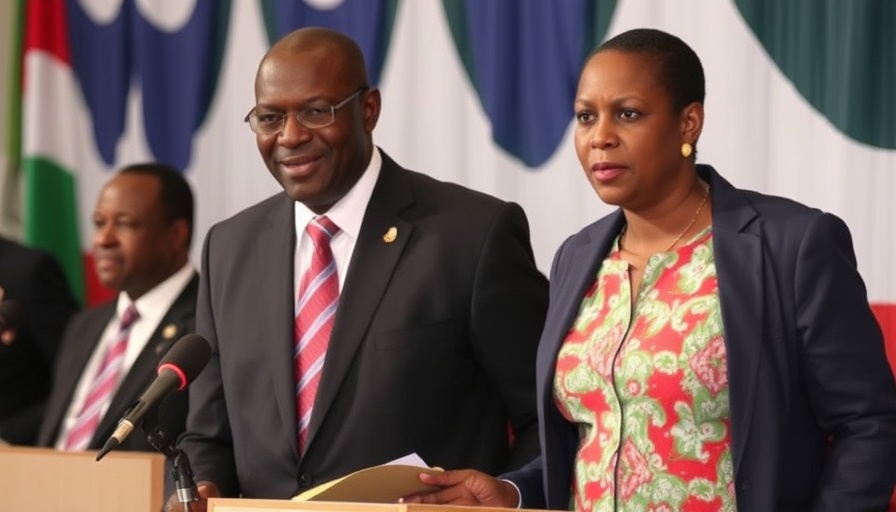
Burundi's Political Landscape: A Reflection on Power Dynamics
The recent senatorial elections in Burundi mark a significant event in the country’s political timeline. With district councillors participating actively, the election aimed to fill 10 out of 13 senatorial seats, allocating positions based on the deeply rooted ethnic distribution mandated by the constitution. This outcome reflects not just an electoral victory for the ruling party, the National Council for the Defence of Democracy-Forces for the Defense of Democracy (CNDD-FDD), but it also ignites discussions around the future political dynamics within Burundi, especially with plans for the presidential election in 2027 looming.
Understanding the Ethnic Distribution in Burundian Politics
The senatorial elections showcased the ongoing significance of ethnic identities in Burundi's political structure. Ethnic balance, where one senator is elected from the Hutu community and another from the Tutsi, is a constitutional requirement aimed at fostering harmony post-civil conflict. This practice, however, prompts questions regarding the real efficacy of such mechanisms in curbing political tensions. Critics argue that while it seeks to promote inclusivity, it also potentially perpetuates sectarian divisions rather than bridging them, presenting an intriguing case for scholars studying African governance.
The Economic Implications of Burundi's Political Stasis
The overwhelming success of CNDD-FDD in securing all seats during the elections has implications beyond politics. In light of the ruling party’s continued dominance, investors and business leaders are keenly observing how governance stability—or the lack thereof—will influence economic growth in Burundi. Upcoming village-level elections set for August further complicate this landscape. A stable governance structure may pave the way for improved conditions that attract foreign investment and bolster trade relationships, particularly with African and global partners.
Future Prospects: Policy Continuity or Change?
The forthcoming elections are crucial in determining whether Burundi will sustain the current political trajectory or transition towards a new governance model. The anticipation surrounding the presidential elections in 2027 suggests a possible shift that could either fortify the existing power dynamics or challenge them. As such, the insights from these senatorial elections may signal broader trends in diplomacy and economic relations within the region, especially concerning Burundi's interactions with global powers like the EU and China.
Conclusion: Why the World Should Pay Attention
Burundi's senatorial elections are not merely an isolated political event; they hold critical significance within the context of the entire East African region. As Africa's role in global economics and politics continues to evolve, understanding these dynamics is essential for business leaders, policymakers, and researchers alike. The necessity for deeper socio-economic analysis surrounding these elections can guide future diplomatic strategies and foreign investments decisions.
 Add Row
Add Row  Add
Add 


Write A Comment